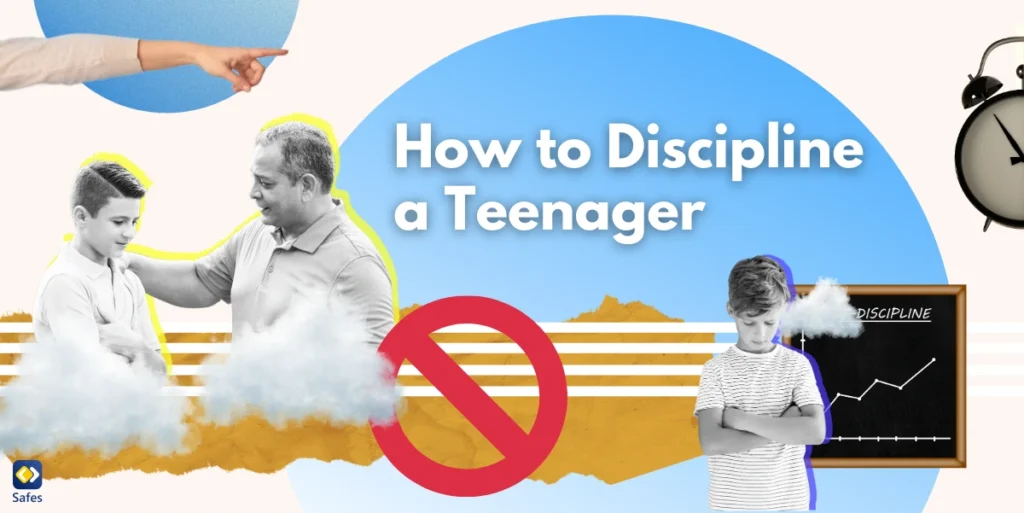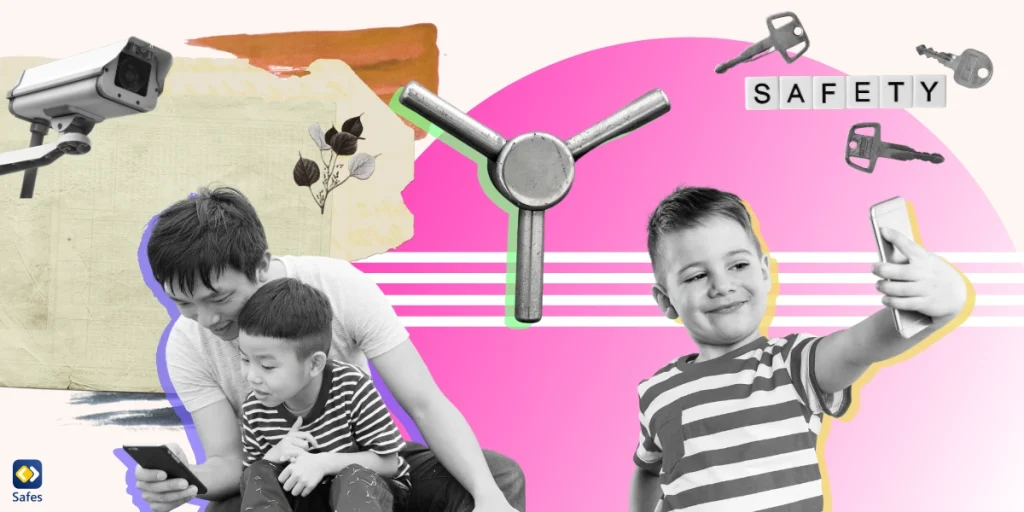“I just don’t understand why my daughter has become so cold and distant. I’m worried that I’m not doing something right as a parent. I’m also so confused and hurt by her attitude. I want to be able to have an open, honest relationship with my daughter, but it seems like she’s pushing me away. I desperately need some help in figuring this out: why is my teenage daughter so mean to me?” This is a question that a parent with a 15-year-old daughter asked us. It’s in fact a quite common question.
Download and Start Your Free Trial of the Safes Parental Control App
The reality is that your 15-year-old daughter might be so frustrated with your relationship and scrutiny that she lashes out at you in response. It doesn’t necessarily mean she wants to be mean. It means she can no longer hide her feelings like before. Your teen probably feels as if you don’t understand her struggles or don’t validate her feelings when they are upset or angry with you.
Teenage girls are often misunderstood, making them feel helpless and hopeless about what others think of them. They may not know how to handle these emotions or talk about them without feeling anxious, ashamed, or judged for being so ‘unlovable’ or ‘selfish’ by the outside world (which you must help correct).
In this blog post, we’ll try to answer the question “why is my teenage daughter so mean to me?” and provide solutions for a mutual understanding between you and your daughter.
Understanding Your Daughter’s Perspective
To address your daughter’s mean behavior, you must first try to understand her perspective. Doing so can help you express yourself better and communicate with her. It will also give you insight into why she acts the way she does.
As a teenager, your daughter is reliant on you more than ever. She needs you to guide her through this new stage of life, and she’s looking to you for understanding and support. When she feels like you don’t understand her feelings or why she’s acting the way she does, she experiences a sense of loneliness and isolation.
You can start by asking your daughter questions about what she’s doing and why she’s doing it. This can help you understand her better, as well as give her an opportunity to discuss her feelings. Discussing her feelings will help relieve some of her discomforts and help her process them healthily. If you can reduce your daughter’s feelings of isolation, you can ease her mean behavior.
Addressing External Stressors
External stressors are things that happen in your daughter’s life that may cause her to act out. If you can reduce the amount of external stress your daughter experiences, you may be able to ease her behavior. Some external factors that may affect your daughter include:
- School stress: Including pressure to perform immaculately at school, academically or otherwise.
- Peer relationships: Including bullies, cyberbullies, and emotional relationships.
- Social media: Including feeling the pressure to conform to social media portrayals and stereotypes.

Promoting Positive Coping Strategies
Emotions are normal, healthy parts of your daughter’s development and growth. Unfortunately, many teens don’t have the skills or strategies to manage them. This can lead to unhelpful or unhealthy behaviors, such as lashing out at others or harming themselves. The goal of promoting positive coping strategies is to help your daughter learn how to deal with negative emotions in a healthy way. This can reduce the amount of negative behavior and help your daughter to feel better. You can start by asking your daughter how she deals with her feelings. This can lead to an open dialogue about what is happening in her life that may be causing her to feel overwhelmed or sad.
Suggest Exercising to Relieve Tension
Exercise is an excellent way for teenage girls to relieve tension and stress. Not only does it provide physical benefits, such as increased strength and flexibility, but it can also help with mental wellbeing. When exercising, endorphins are released that help reduce stress levels. Additionally, teenage girls can use exercise as an outlet to express their emotions, helping them to work through their feelings in a positive way. Exercise can provide a sense of accomplishment and boost self-esteem, both of which can help girls to better manage their emotions and stress levels.
Setting Appropriate Boundaries
When your daughter experiences negative feelings, she will often want to express them in an unhelpful or unhealthy way. This can lead to bullying, lashing out at others, or self-harm.
Try to keep your expectations and boundaries consistent so that your daughter understands where they’re coming from. This can help to reduce confusion and conflict. You can also try to set consequences with your daughter when she breaks her boundaries. This can help her to understand when she has crossed the line and cause her to be more mindful.
Seeking Professional Help
If your daughter is bullying others or engaging in self-harming behaviors, showing signs of stress, depression, or low self-esteem, she should be evaluated by a professional. By getting help from a trained professional, she may be able to get the help she needs sooner.
Your daughter may be better off seeing a therapist specializing in adolescent girls. It’s important to note that not all therapists are suitable for teens. It’s recommended that you speak with your daughter’s therapist to see if they would be a good fit for her.

Conclusion
Teenage girls are often misunderstood, and they may be experiencing a lot of pressure and stress. When they have unhelpful coping skills or are dealing with high external stress, they may lash out at others or harm themselves. The good news is that these behaviors are temporary. There are ways to help your daughter cope with these issues, such as talking to a trusted adult, seeking professional help, and exercising.
How Can Safes Help Your Parent-Daughter Relationship?
Parenting a teenager can be challenging, but it can also be rewarding. However, it can be even more challenging when your daughter is a difficult child. If you’re looking for ways to improve your relationship with your daughter, you may want to consider using a safe parental control app.
The Safes parental control app is designed to help parents manage their teenagers. The app includes a variety of features, such as access to location and calendar data, messaging, and social media activity. The app also allows parents to control their teenagers’ phone usage and internet access.
Using the Safes parental control app, you can help manage your teenager’s behavior and improve your relationship.
You can download Safes for both Android and iOS devices. You may benefit from a 14-day free trial and premium features with just a click. If you want to know how to use it, these links can assist you:
- Windows parental controls
- Macbook parental controls
- Parental controls on Android
- iPhone parental controls
Your Child’s Online Safety Starts Here
Every parent today needs a solution to manage screen time and keep their child safe online.
Without the right tools, digital risks and excessive screen time can impact children's well-being. Safes helps parents set healthy boundaries, monitor activity, and protect kids from online dangers—all with an easy-to-use app.
Take control of your child’s digital world. Learn more about Safes or download the app to start your free trial today!




